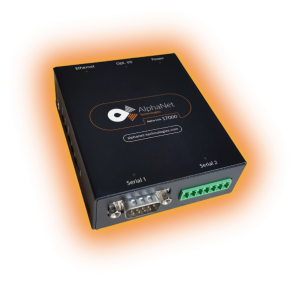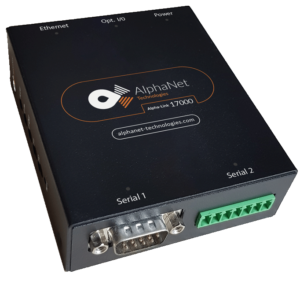Supervisory Control and Data Acquisition (SCADA) software is a critical technology used in various industries to monitor and control large-scale processes, such as power generation, manufacturing, and water treatment. The software is used to gather data from sensors, meters, and other equipment, and then analyze the data to identify patterns, trends, and anomalies. The system then sends commands to control the equipment, such as opening or closing valves, adjusting temperatures, or turning on or off pumps.
There are several companies that provide SCADA software, each with their own strengths and weaknesses. The top SCADA software companies include:
Schneider Electric:
Schneider Electric is a global company that specializes in energy management and automation solutions. They offer a range of SCADA software products, including EcoStruxure Control Expert, Wonderware System Platform, and ClearSCADA. These products are designed for a variety of industries, including oil and gas, power, and water management.
Siemens:
Siemens is a multinational conglomerate that produces a range of products, including automation and control systems. Their SCADA software products include SIMATIC WinCC, SIMATIC WinCC Open Architecture, and SIMATIC HMI. These products are designed for a range of industries, including energy, water, and transportation.
ABB:
ABB is a global technology company that specializes in robotics, power, and automation. They offer a range of SCADA software products, including ABB Ability System 800xA, ABB Ability Symphony Plus, and ABB Ability Knowledge Manager. These products are designed for a variety of industries, including power generation, oil and gas, and water management.
GE Digital:
GE Digital is a subsidiary of General Electric that focuses on digital solutions for industry. They offer a range of SCADA software products, including iFIX, CIMPLICITY, and Historian. These products are designed for a variety of industries, including power generation, oil and gas, and manufacturing.
Honeywell:
Honeywell is a global company that produces a range of products, including control and automation systems. Their SCADA software products include Experion PKS, Experion LX, and Experion HS. These products are designed for a variety of industries, including oil and gas, power, and chemical processing.
Yokogawa:
Yokogawa is a Japanese company that specializes in automation and control systems. They offer a range of SCADA software products, including FAST/TOOLS, Exaquantum, and STARDOM. These products are designed for a variety of industries, including oil and gas, chemical processing, and power generation.
Rockwell Automation:
Rockwell Automation is an American company that produces automation and control systems. Their SCADA software products include FactoryTalk View, FactoryTalk Historian, and FactoryTalk VantagePoint. These products are designed for a variety of industries, including manufacturing, oil and gas, and water management.
Mitsubishi Electric:
Mitsubishi Electric is a Japanese company that produces a range of products, including automation and control systems. Their SCADA software products include MX Component, MX Sheet, and MC Works64. These products are designed for a range of industries, including power, water management, and manufacturing.
Inductive Automation:
Inductive Automation is an American company that produces SCADA software products, including Ignition, which is designed for a range of industries, including oil and gas, power, and water management.
Iconics:
Iconics is an American company that produces a range of automation and control products, including SCADA software. Their SCADA software products include GENESIS64, Hyper Historian, and MobileHMI. These products are designed for a range of industries.
One of the primary advantages of SCADA systems is increased efficiency. By automating industrial processes and providing real-time data, SCADA systems can help operators identify inefficiencies and make adjustments to improve performance. For example, if a manufacturing plant is producing too much waste or experiencing high energy costs, SCADA systems can help operators pinpoint the source of the problem and make changes to reduce waste or conserve energy. This can lead to significant cost savings and improved profitability.
Another advantage of SCADA systems is improved reliability. By constantly monitoring the status of industrial processes, SCADA systems can detect potential problems before they occur and alert operators to take action. For example, if a piece of equipment is showing signs of wear and tear, SCADA systems can notify operators to schedule maintenance before the equipment fails. This can help prevent costly downtime and equipment damage, as well as reduce the risk of safety hazards.
SCADA systems also provide enhanced safety benefits. By automating hazardous processes and providing real-time data, SCADA systems can help reduce the risk of accidents and injuries. For example, in a chemical manufacturing plant, SCADA systems can monitor the levels of toxic gases and alert operators if the levels become unsafe. This can help prevent exposure to harmful chemicals and reduce the risk of accidents.
In addition, SCADA systems offer greater flexibility compared to traditional control systems. SCADA systems can be easily customized to meet the specific needs of different industrial processes, and can be integrated with other systems, such as Enterprise Resource Planning (ERP) and Manufacturing Execution Systems (MES). This flexibility allows SCADA systems to adapt to changes in the industrial environment and improve performance over time.
Another advantage of SCADA systems is improved communication. SCADA systems provide a centralized platform for data collection and analysis, which allows operators to share information and collaborate more effectively. This can help improve decision-making and reduce the risk of errors.
Finally, SCADA systems offer improved scalability. As industrial processes become more complex and sophisticated, SCADA systems can be expanded to accommodate additional sensors, control devices, and other components. This allows companies to grow and expand their operations without having to invest in new control systems.
SCADA systems offer several advantages for industrial processes, including increased efficiency, improved reliability, enhanced safety, greater flexibility, improved communication, and improved scalability from the above software companies mentioned above. These benefits can help companies improve performance, reduce costs, and enhance their competitiveness in the global marketplace.


